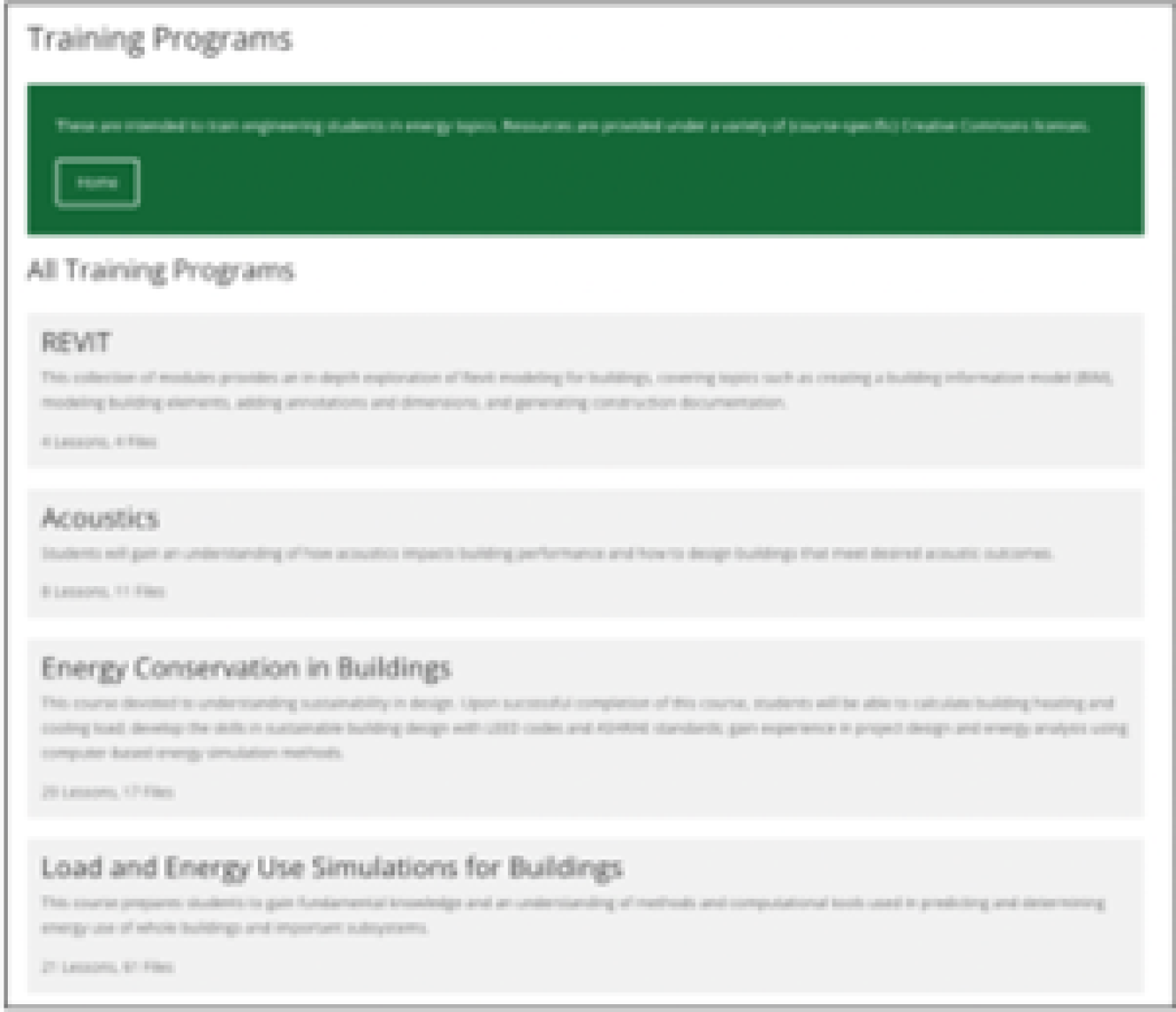Lead Performer: Pennsylvania State University – State College, PA
July 24, 2023
Project Website: https://sites.psu.edu/benefit/
Lead Performer: Pennsylvania State University – State College, PA
Partners:
-- National Renewable Energy Laboratory – Golden, CO
-- University of New Mexico – Albuquerque, NM
-- George Mason University – Fairfax, VA
-- University of Texas at Austin – Austin, TX
-- Tennessee State University – Nashville, TN
-- University of Miami – Coral Gables, FL
-- Missouri University of Science and Technology – Rolla, MO
-- Illinois Institute of Technology – Chicago, IL
DOE Total Funding: $70,000
Project Term: March 1, 2021 – September 30, 2023
Funding Type: FOA Award (Subcontract)
Project Objective
To overcome the composite challenge of professors without a background in computation and the lack of an existing support network (shared resources, question forum), this project seeks to establish an educational consortium for energy-related data science and computation in building engineering programs, starting with eight universities and one national lab. By bringing together the consortium faculty, a repository of building energy focused computational and data science educational resources will be generated to promote and advance undergraduates in AE and related programs. Users of the repository will be exposed to a wide array of computational methods and energy-related technologies and how they can be applied to educational settings. Additionally, this consortium will foster data sharing so computational education can be properly contextualized and motivated by real-world energy datasets. Working with NREL and leveraging the DOE BTO roadmap for modeling and simulation platforms will ensure that the skills students are learning match well with what is expected in the workforce today and what can lead the industry tomorrow.
Project Impact
This project will advance the workforces associated with the building industry. By creating an academic consortium for sharing curricular materials and datasets for energy-facing computation, students are prepared to enter the workforce with advanced skills to develop next-generation building technologies that have the potential for significant energy and carbon savings and improving demand flexibility, affordability, and occupant comfort.
Contacts
DOE Technology Manager: Charles Llenza
Lead Performer: Dr. Rebecca Napolitano, Pennsylvania State University

